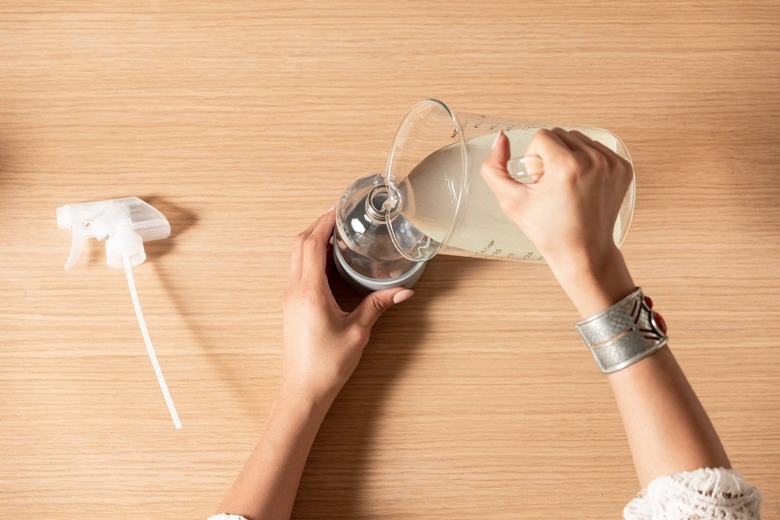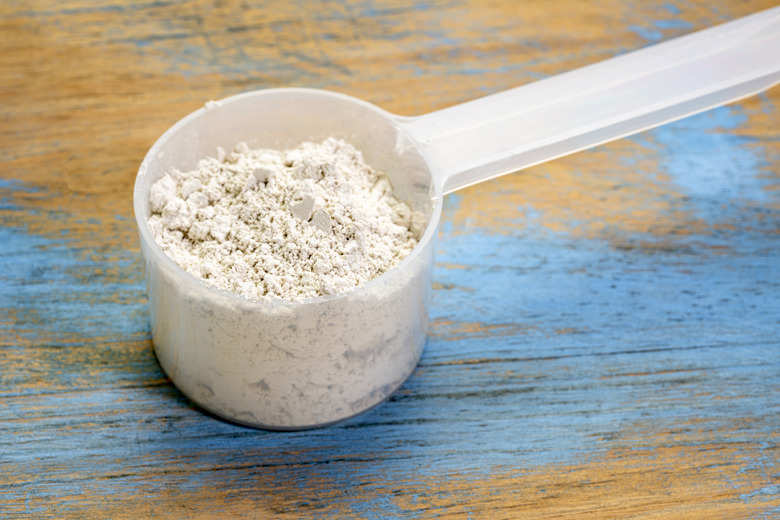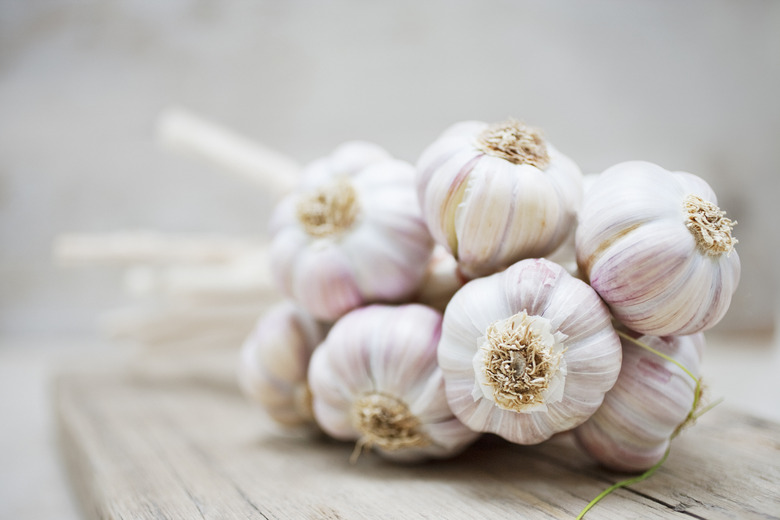5 DIY Insecticides That Eliminate Pesky Bugs
We may receive a commission on purchases made from links.
Looking for a DIY pest control solution that doesn't involve a bunch of unnatural chemicals you can't pronounce? Whether you don't feel comfortable using traditional pest control products in your garden or inside your home — or you don't have a large enough infestation to warrant hiring an exterminator — there are plenty of effective pesticide recipes that can be made from simple ingredients you may already have around the house.
However, before you reach for your essential oils kit, you should know that essential oils aren't a guaranteed method of eliminating pests. Although you may have heard they can be effective at driving pests away, essential oils likely won't kill the creepy crawlies that are ruining your coneflowers or crawling around your baseboards. In other words: If your pest control goal is to quickly kill the pests and not just relocate them, it makes sense to use harsher, more lethal methods.
1. Insecticidal Soap
1. Insecticidal Soap
If the bugs are wreaking havoc in your garden, a simple, effective insecticidal soap can eliminate bugs like lacebugs, mealybugs and aphids with a quick spray. All you need to make it is to mix 5 tablespoons of liquid soap or Castile soap with a gallon of water. If you need a little less, you can cut this insecticide recipe to 1 tablespoon of soap and 1 quart of water. In a pinch, you can use dish soap, but it can dissolve the protective coating on waxy plant leaves. Pour the mixture into a spray bottle and spray directly at the pests you're targeting.
Why does it work? Soaps contain fatty acids that permeate cell membranes and cause the cell contents to leak out, quickly killing the insect. It's gruesome but effective, particularly on soft-bodied insects. Because it needs to stay wet and only works on contact, insecticidal soap works best as a repellent on garden and houseplants that are actively hosting unwanted pests. Note that you probably don't want to randomly spray insecticidal soap around your home, as it may leave behind a soapy residue.
To protect your plants from potential reactions with the soap and for best results, apply the spray to your plants in the morning or evening when dew is present. Avoid spraying during the sunny, hot part of the afternoon and when temperatures exceed 90 degrees Fahrenheit.
2. Oil Sprays
2. Oil Sprays
Like insecticidal soap, oils are another excellent do-it-yourself pest control option — best for protecting your plants from harmful bugs such as aphids, snails, and gnats. However, it's not the best choice for spraying around your house, as it can potentially damage floors or furniture. The best oil to use for your insect-killing concoction is neem oil, which is a naturally sourced oil from seeds in a neem tree. Although it's kind of a mystery as to why, neem oil seems to scramble an insect's hormones. This prevents them from feeding and kills them at every stage in their life cycle. If you don't have neem oil, you can also use vegetable or olive oil to make an oil spray that will coat bugs and suffocate them.
To kill insects with oil, mix together 1 cup of oil and 1 tablespoon of liquid soap. Pour your soap and oil mixture into a spray bottle filled with 1 cup of water and spray plants liberally. Because they work via suffocation, most oils perform best when they come in direct contact with pests. Neem oil works when insects ingest it, however, so you need not make sure you cover the insects when you spray them.
Vegetable oil, of course, is completely harmless to pets and children, and neem oil is considered nontoxic as well. Some children, however, can be sensitive to neem oil. Many toothpastes, medications, cosmetics and soaps contain neem oil, so you'll likely already be aware of any childhood sensitivities. Do keep neem oil away from water, as fish and other aquatic life are negatively affected by the oil.
3. Diatomaceous Earth
3. Diatomaceous Earth
Although it may be hard to spell, diatomaceous earth is easy to use as pest control in your home, killing creepy insects like cockroaches, silverfish, fleas, mites, lice and ants. Diatomaceous earth is a powder made from ancient fossilized organisms called diatoms. In powdered form, diatomaceous earth has sharp edges that can cut into the exoskeleton of bugs that crawl through it. In addition, it absorbs oils and fats from their bodies, causing them to dry out and shrivel up.
To use it for insect control, mix it with some sugar to ensure that it's attractive and then spread it along your baseboards or walls where insects are likely to crawl through it. You can also use a duster to squeeze it into holes and cracks where insects like to hide. As long as it stays dry, any diatomaceous earth you spread will continue to be effective against pests.
Diatomaceous earth is nontoxic, but it can cause eye irritation and throat irritation if inhaled. To be on the safe side, it's best to apply it behind appliances and in places where kids and pets won't come in contact with it.
4. Borax
4. Borax
For insects inside, good old-fashioned borax is another excellent pest management option. It depends, however, on what type of bugs you have. While walking through diatomaceous earth is enough to kill an insect, borax is a poison that works only when ingested. As such, it's effective only against pests that groom themselves after walking through it, like cockroaches and ants.
When a bug takes in borax while cleaning itself, it interferes with both its digestion and its nervous system, ultimately killing it. You can use borax in the same way that you do diatomaceous earth (sprinkling along baseboards and walls where insects are likely to crawl around), but be sure to apply only a thin layer of the powder. There is some evidence that cockroaches can sense and therefore avoid borax. Also keep in mind that borax is potentially toxic to both children and pets when ingested, so use and store it cautiously.
5. Garlic Spray
5. Garlic Spray
Like most home pest control remedies, this recipe is another one for the garden. Garlic works against pests in several ways. Some critters are simply repelled by it. Garlic contains some compounds that stop feeding and egg-laying behaviors in insects and contains others that disrupt vital proteins in insect digestive tracts. This makes garlic deadly for many insect pests but safe for people and pets.
To make a garlic bug spray, grind or chop two garlic bulbs and place them in 4 cups of water. Add a few drops of soap to help your spray stick to plant leaves and then let the mixture steep for 24 hours. Strain the garlic water and then dilute it with plain water using nine parts water to one part garlic water. Use the sprayer in the garden as needed.
Garlic spray is effective against many beetles, whiteflies, caterpillars, wireworms and termites among others. Garlic also works on aphids, but refrain from using it unless you're being overrun. The spray will kill the aphids, but it also kills the beneficial insects that eat them. If you only have a few aphids, garlic spray can do more harm than good.


